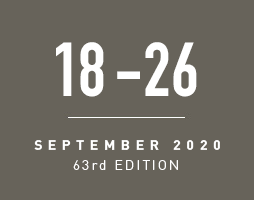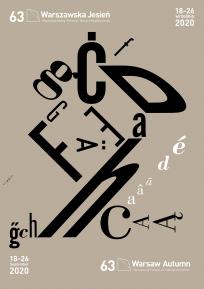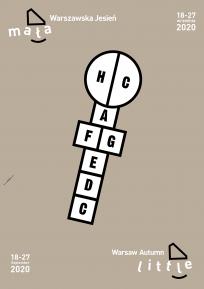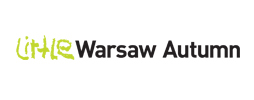63rd Warsaw Autumn
the role of words in music; words embedded in music and music embedded in words; the language of music, the music of language; common elements between music and language; the specificity of structures; the grammar of music, the architecture of text; similar functions; music and information; communication through music; means of transmission; the “speech” of music from the social perspective; art of the time of the plague: home music.
Concerts, performances, sound theatre, various opera formulas, intermedia, improvisations, internet and radio forms (on the 95th anniversary of the Polish Radio), meetings, composer workshops / Nearly 50 festival events / Young generation of Polish composers / Featured composers: Mark Andre, François Sarhan, Grażyna Pstrokońska-Nawratil, François-Bernard Mâche, Peter Ablinger, Joanna Woźny / 50 composers, including 23 making their Warsaw Autumn debut, with 23 world premieres, including Warsaw Autumn commission / Five orchestras, two choir, nine ensembles, soloists / Warsaw Autumn Festival Radio and seven events venues.
The Warsaw Philharmonic Orchestra and Choir, National Polish Radio Symphony Orchestra in Katowice, New Music Orchestra, NFM Leopoldinum String Trio, NFM Leopldinum Orchestra, European Workshop for Contemporary Music Orchestra, Chopin University Big Band, Ensemble Vortex, Ensemble Nikel, Ensemble Garage, Kwadrofonik, ElettroVoce, Electric Primitivo, and many others.
The main Festival thread; Warsaw Autumn Hits the Club; Little Warsaw Autumn; Warsaw Autumn Contexts and fringe events.
In the programme of this year’s Warsaw Autumn, we shall show the relationship between music and language notably through the words of François Sarhan’s new opera; the advertisement texts of Georges Aperghis’s Pubs-Reklamen; the verbal–musical performance of Agata Zubel and Cezary Duchnowski’s ElletroVoce duo; the matrix of language in the music of François-Bernard Mâche, whose research on languages and music are very thorough and specific; the fusion of textual samples and transgeneric music in Juliana Hodkinson’s; the common phrases of recorded text and piano sounds in Peter Ablinger’s Voices and Piano; the sonorism of signs in Mark Andre’s cycle riss 1–3; sound gestures in Kuba Krzewiński’s Contre no. 2; references to reportage in Pstrokońska-Nawratil’s The Nightingale and the Stone; the speech of sign language in Mark Applebaum’s Aphasia; language and music in relation to reality in the Feminine Formsconcert, featuring works by Monika Szpyrka, Żaneta Rydzewska Martyna Kosecka, Anna Sowa, and Nina Fukuoka. This year’s Warsaw Autumn will be framed by two great choral–instrumental forms with text, serving as deeply significant keys. Our inaugural concert will feature the first Polish performance of Mauricio Kagel’s Vox humana?The final concert will include Miroslav Srnka’s Speed of Truth. Warsaw Autumn will speak much more about the relations between music and language, but will also include many compositions where that relation is absent. In fact, today’s music cannot be simplified to one issue—even if fundamental.
Jerzy Kornowicz
Director of the Festival





